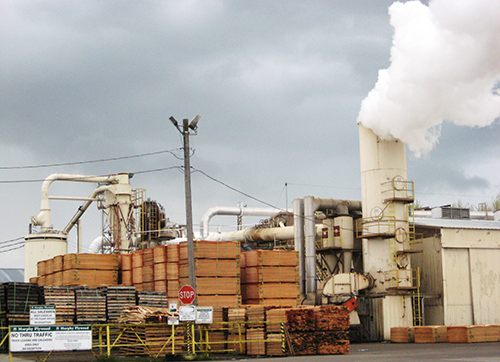Air Toxics in West Eugene, OR
All communities need their voices heard and their rightful place in the decisions to strengthen Oregon’s air quality laws. In order to be effective advocates for their own communities and their families’ health, impacted residents need accurate and complete data about toxic pollutants in the Air.
The following letter was submitted on Jan. 10 & 11 to legislators to let them know the will of communities and to ask them to commit to strong toxics reporting laws. Good air follows from accurate data, strong policy and regulations.
Dear Senator Riley, Senator Taylor, Representative Nosse and Representative Helm,
We are writing to follow up with you on your commitment to introduce and pass a Toxics Reporting bill in 2017.
The undersigned groups represent impacted Oregon communities who want legislation that upholds their fundamental right to know what’s in the air and water in their neighborhoods. The principles of environmental justice insist that our communities deserve full public engagement, agency transparency and factual information that we can access easily.
Oregon already has a Toxics Reporting (aka Community Right-To-Know) statute on the books, used successfully since 1996 by the Eugene Fire Marshall’s Office. However, community-level reporting is not enough to satisfy the principles of environmental justice. Some local governments may adopt a Toxics Right-to-Know program if engaged constituents are organized and vocal. Other local governments may not adopt any such program, again leaving some vulnerable communities at a disadvantage to engage in meaningful discussions about their quality of life.
On December 1, 2016, Oregon's Department of Environmental Quality launched its own toxics reporting program when Interim Director Whitman sent a letter to regulated industrial facilities requesting "inventories" of substances they use from a list of 633 toxic chemicals. This new action suggests the DEQ recognizes the need for statewide toxics reporting for better regulatory effectiveness. However, the DEQ inventory requirement is deficient in two core areas.
First, the emissions inventory is based on estimations and modeling. This method lacks accuracy. Regulators need data generated by a precise system based on materials balancing. Materials balancing is the system used by the Eugene Fire Marshall that requires exact mathematical input-output calculations for air, water and land. Materials balancing is critical, particularly in cases where toxic emissions are caused by non-stack activities such as grinding, cutting, shredding, off-gassing, evaporation and other fugitive emissions, all of which can be substantial.
Secondly, the DEQ is not planning to make emissions data accessible to the public. This violates Governor Brown’s directive to provide communities with air quality information. Governor Brown promised that the DEQ will be “providing Oregon families ready access to information about industrial emissions near their homes.” Truly, our communities deserve full public engagement grounded in factual information that we can access in a straightforward manner. The solution is access to data via a public website.
In light of these needs, we urge you to adopt these four critical components of Statewide Toxics Reporting legislation:
1. Stable Funding: “Polluter Pays” based upon quantity of toxic chemicals emitted;
2. Statewide Reporting: All Oregon industrial manufacturers with air or water quality permits are required to report toxics emissions to the DEQ. Statewide reporting is necessary because local reporting programs are inequitable;
3. Accurate Data-Not Estimated Data: Require annual materials balancing, a comprehensive mathematical reporting of toxic releases to air, water and land by the pound, or in the case of a hazardous or extremely hazardous chemicals and radioactive substances, less than a pound;
4. Environmental Justice and Community Engagement: Establishes public and user-friendly online access to toxics reporting data to assist community right to know and informed stakeholder input.
When Governor Brown announced a new statewide initiative, Cleaner Air Oregon in April 2016, she issued a clear commitment to vulnerable communities that“[c]ontinued public engagement as the regulatory reform process moves forward will be critical to achieving cleaner industrial air emissions in our neighborhoods throughout Oregon.”
However, we feel at a disadvantage in the public engagement process without the ability to inform our own communities about the toxics exposures they actually face. Without accurate data and the ability to locate the sources of toxics emissions, our participation is merely subjective estimations of public health risks.
We ask you, as our elected representatives, to address community vulnerability and the principles of environmental justice. Please work with us to introduce and pass a 2017 State Toxics Reporting bill.
Our community organizations promise to sustain your efforts.
We would appreciate a reply to representatives of the following organizations describing your plans to work towards toxic emissions reporting. Thank you very much for your work on protecting air quality and reducing health risks to vulnerable communities.
Signed,
Seventeen Community Groups Who Want Clean Air and Healthy Families:
1. Beyond Toxics
2. Eastside Portland Air Coalition (EPAC)
3. Corvallis Clean Air
4. The Dalles Air Coalition
5. PDX North Harbor Neighbors
6. Linnton Neighborhood Association Board
7. Cully Clean Air
8. South Portland Air Quality (SPAQ)
9. Citizens of Rockaway Beach
10. Portland Clean Air
11. NWDA Air Quality Committee
12. Environment and Human Health Advisory
13. McPhillips Farms (McMinnville)
14. Concerned Citizens for Clean Air (Lincoln County)
15. Cleaner Air Grants Pass
16. Hillsboro Air and Water
17. Stop the Dump Coalition (Yamhill County)
6. Linnton Neighborhood Association Board
7. Cully Clean Air
8. South Portland Air Quality (SPAQ)
9. Citizens of Rockaway Beach
10. Portland Clean Air
11. NWDA Air Quality Committee
12. Environment and Human Health Advisory
13. McPhillips Farms (McMinnville)
14. Concerned Citizens for Clean Air (Lincoln County)
15. Cleaner Air Grants Pass
16. Hillsboro Air and Water
17. Stop the Dump Coalition (Yamhill County)


